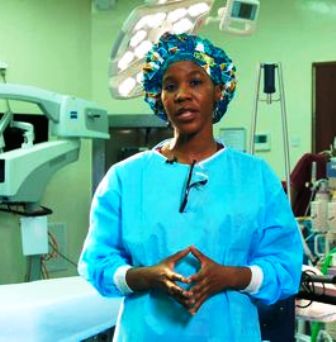Cancer Care in Africa is improving – Dr. Miriam Mutebi
Although cancer care has improved significantly in many African countries over the past decade, challenges in prevention, detection and treatment services as well as financial hurdles are limiting access to quality and adequate care to millions of patients. Dr. Miriam Mutebi, President Elect, African Organization for Research and Training in Cancer describes the state of cancer care in Africa and how it can be improved.
What is the current situation of cancer care in Africa?
Cancer care in Africa has greatly improved over the last 10 years. By 2017, 71% of African countries, up from 46% in 2013, had operational national cancer control programmes, and the oncology workforce has increased steadily. However, care and services vary widely, sometimes within the same country or region – from institutions offering state-of-the-art care to basic services that can be hard to access. Many patients in Africa are diagnosed with advanced cancers and do not complete their care. There are several reasons for this, cost being the main one: patients frequently must pay out of pocket to access care, incurring expenses that can be financially catastrophic. Poor referral systems that may not support timely pathways to care or adequate treatment, palliative or supportive services. Geographical inequities also exist in terms of access to care.
What are the major challenges of care services in Africa?
A major hurdle has been the deficits in the existing oncology workforce along the entire cancer care continuum. However, as the pandemic has shown us, there are opportunities to expand this workforce by leveraging technology and taking advantage of the continent’s collective expertise through shared learning platforms and care delivery strategies, virtual tumour boards and radiation treatment planning, and increased involvement of the African diaspora and international community. Many regions also contend with dysfunctional systems and weak oncology infrastructure. These are further compounded by socio-cultural barriers such as fatalism and stigma, a general lack of awareness by both providers and populations on cancer signs and symptoms, and the use of alternative therapies that can delay care. Service quality varies, with a lack of regulation of services and products used, treatment protocols and adherence to guidelines. However, attempts to standardize are underway through national and regional initiatives.
What are the health implications of inadequate cancer care services?
Inadequate cancer services mean a continued increase in premature deaths. Better cancer services have a ‘Trojan horse’ effect in improving other health care delivery, potentially affecting other aspects of health. Preventive health, which is essential in cancer risk mitigation, is important to lower the risk of other non-communicable diseases like hypertension and cardiac disease. The same pathways that facilitate HPV vaccination can be leveraged for immunization against other infectious diseases. Beyond health, there are profound implications when a significant component of the workforce is lost or compromised. The average cancer patient in Africa is diagnosed at their most economically productive period.
How can African countries expand cancer care services?
Deliberate investment by governments in health and health systems is key. A paradigm shift is needed from approaching health as an expenditure to reframing health costs as investments. External sources can support initiatives, but in-country investment is key to impacting public health. System-strengthening strategies must bring countries and their populations closer to the targets of universal health coverage. More community awareness of cancer prevention and early detection is needed, but systems must be prepared to support the entire cancer continuum from screening to survivorship. Integrated approaches to cancer care can optimize resources and prevent misuse. For instance, pooled procurements of cancer medications and shared use of resources through established regional centres of excellence could reduce costs and improve access, as could decentralized essential cancer services like palliative and supportive care. Local manufacturing of cancer medicines and consumables such as stoma bags can also lower costs. Integrated curriculums can enhance education and minimize risk factors for non-communicable diseases from primary school onwards. Advocacy is key.
The dream of value-based, high-quality, cost-effective cancer care across Africa remains our goal. If we harness our collective efforts and strengths, we will get there.
Courtesy: WHO Africa

